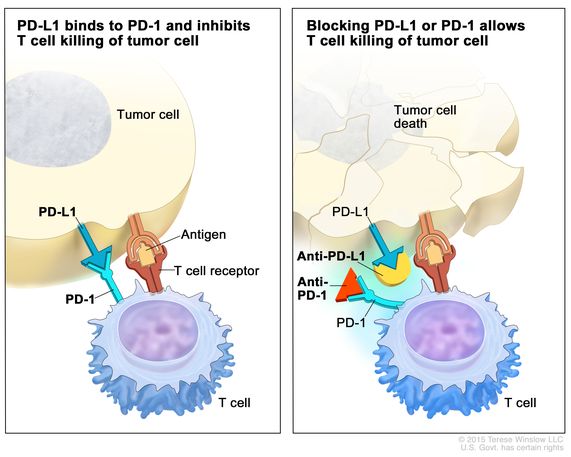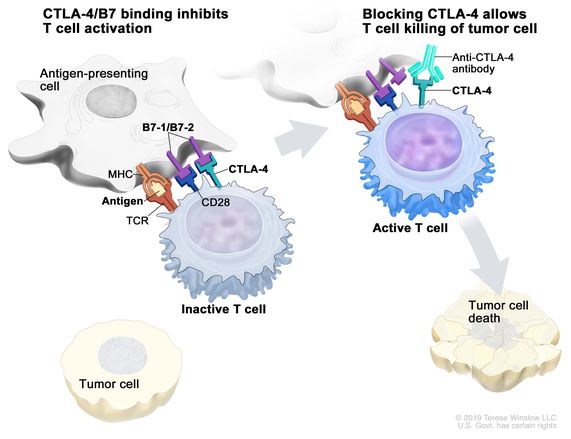immune checkpoint inhibitor
(ih-MYOON CHEK-poynt in-HIH-bih-ter)
A type of drug that blocks proteins called checkpoints that are made by some types of immune system cells, such as T cells, and some cancer cells. These checkpoints help keep immune responses from being too strong and sometimes can keep T cells from killing cancer cells. When these checkpoints are blocked, T cells can kill cancer cells better. Examples of checkpoint proteins found on T cells or cancer cells include PD-1/PD-L1 and CTLA-4/B7-1/B7-2. Some immune checkpoint inhibitors are used to treat cancer.

